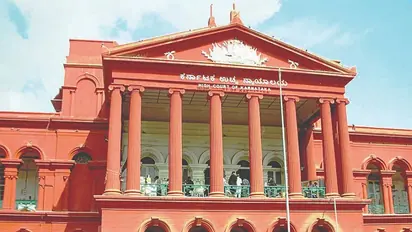Temples cannot be excluded from RTI: Karnataka High Court

Synopsis
The Karnataka High Court dismissed a petition seeking exemption of temples from the RTI Act, affirming they qualify as public authorities under state religious oversight. Chief Justice N.V. Anjaria upheld transparency, stating that RTI inquiries do not burden temple priests unduly. The ruling underscores temples' accountability as custodians of public religious endowments.
Karnataka High Court has ruled against excluding temples from the ambit of the Right to Information (RTI) Act. The dismissal came in response to a petition filed by K.S.N. Dixit, the General Secretary of All Karnataka Hindu Temple Priests, Agamikas, and Priests Association, seeking exemption for temples from the transparency law.
Chief Justice N.V. Anjaria, along with a division bench, upheld that temples, particularly those managed under the State Religious Endowment Department, qualify as public authorities and thus fall under the purview of the RTI Act. The bench emphasized that the act of seeking information through RTI does not impose undue burden or interference upon the priests serving in these temples.
"The temples where the petitioners are priests are public authorities under the State Religious Endowment Department and come under the RTI Act. So seeking information under the Right to Information Act does not constitute a nuisance to priests. Therefore, the bench held that the petition of the petitioner cannot be considered and dismissed the petition," the court stated in its order.
The ruling underscores the principle that temples, as custodians of public religious endowments, are accountable to the public under the transparency provisions of the RTI Act. This decision is expected to have implications across similar cases involving religious institutions under state oversight.
Stay updated with the Breaking News Today and Latest News from across India and around the world. Get real-time updates, in-depth analysis, and comprehensive coverage of India News, World News, Indian Defence News, Kerala News, and Karnataka News. From politics to current affairs, follow every major story as it unfolds. Download the Asianet News Official App from the Android Play Store and iPhone App Store for accurate and timely news updates anytime, anywhere.